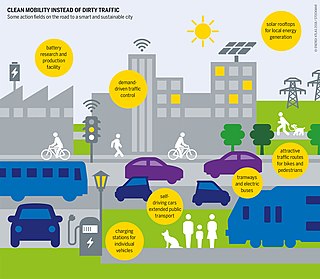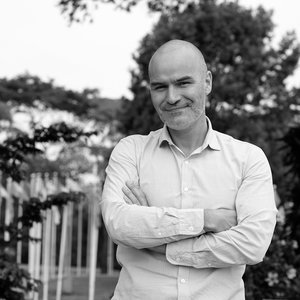Related Research Articles

Extreme poverty, deep poverty, abject poverty, absolute poverty, destitution, or penury, is the most severe type of poverty, defined by the United Nations (UN) as "a condition characterized by severe deprivation of basic human needs, including food, safe drinking water, sanitation facilities, health, shelter, education and information. It depends not only on income but also on access to services". Historically, other definitions have been proposed within the United Nations.

The United Nations Development Programme (UNDP) is a United Nations agency tasked with helping countries eliminate poverty and achieve sustainable economic growth and human development. Headquartered in New York City, it is the largest UN development aid agency, with offices in 170 countries.
Teradata Corporation is an American software company that provides cloud database and analytics-related software, products, and services. The company was formed in 1979 in Brentwood, California, as a collaboration between researchers at Caltech and Citibank's advanced technology group.

Jeane Duane Kirkpatrick was an American diplomat and political scientist who played a major role in the foreign policy of the Ronald Reagan administration. An ardent anticommunist, she was a longtime Democrat who became a neoconservative and switched to the Republican Party in 1985. After serving as Ronald Reagan's foreign policy adviser in his 1980 campaign, she became the first woman to serve as United States Ambassador to the United Nations.

Alex Paul "Sandy" Pentland is an American computer scientist, the Toshiba Professor at MIT, and serial entrepreneur.

A smart city is a technologically modern urban area that uses different types of electronic methods and sensors to collect specific data. Information gained from that data is used to manage assets, resources and services efficiently; in return, that data is used to improve operations across the city. This includes data collected from citizens, devices, buildings and assets that is processed and analyzed to monitor and manage traffic and transportation systems, power plants, utilities, water supply networks, waste, Criminal investigations, information systems, schools, libraries, hospitals, and other community services. Smart cities are defined as smart both in the ways in which their governments harness technology as well as in how they monitor, analyze, plan, and govern the city.

The United Nations Department of Economic and Social Affairs is part of the United Nations Secretariat and is responsible for the follow-up to major United Nations Summits and Conferences, as well as services to the United Nations Economic and Social Council and the Second and Third Committees of the United Nations General Assembly. UN DESA assists countries around the world in agenda-setting and decision-making with the goal of meeting their economic, social and environmental challenges. It supports international cooperation to promote sustainable development for all, having as a foundation the 2030 Agenda for Sustainable Development and the 17 Sustainable Development Goals (SDGs) as adopted by the UN General Assembly on 25 September 2015. In providing a broad range of analytical products, policy advice, and technical assistance, UN DESA effectively translates global commitments in the economic, social and environmental spheres into national policies and actions and continues to play a key role in monitoring progress towards internationally agreed-upon development goals. It is also a member of the United Nations Development Group.

The Center for Global Development (CGD) is a nonprofit think tank based in Washington, D.C., and London that focuses on international development.
Aster Data Systems was a data management and analysis software company headquartered in San Carlos, California. It was founded in 2005 and acquired by Teradata in 2011.

Big data refers to data sets that are too large or complex to be dealt with by traditional data-processing application software. Data with many fields (rows) offer greater statistical power, while data with higher complexity may lead to a higher false discovery rate. Big data analysis challenges include capturing data, data storage, data analysis, search, sharing, transfer, visualization, querying, updating, information privacy, and data source. Big data was originally associated with three key concepts: volume, variety, and velocity. The analysis of big data presents challenges in sampling, and thus previously allowing for only observations and sampling. Thus a fourth concept, veracity, refers to the quality or insightfulness of the data. Without sufficient investment in expertise for big data veracity, then the volume and variety of data can produce costs and risks that exceed an organization's capacity to create and capture value from big data.

Amina Jane Mohammed is a Nigerian-British diplomat and politician who is serving as the fifth Deputy Secretary-General of the United Nations. Previously, she was Nigerian Minister of Environment from 2015 to 2016 and was a player in the Post-2015 Development Agenda process.
The GDELT Project, or Global Database of Events, Language, and Tone, created by Kalev Leetaru of Yahoo! and Georgetown University, along with Philip Schrodt and others, describes itself as "an initiative to construct a catalog of human societal-scale behavior and beliefs across all countries of the world, connecting every person, organization, location, count, theme, news source, and event across the planet into a single massive network that captures what's happening around the world, what its context is and who's involved, and how the world is feeling about it, every single day." Early explorations leading up to the creation of GDELT were described by co-creator Philip Schrodt in a conference paper in January 2011. The dataset is available on Google Cloud Platform.

The United Nations World Humanitarian Summit (WHS) was held in Istanbul, Turkey, on May 23 and 24, 2016. The summit was an initiative of the Secretary-General of the United Nations Ban Ki-moon and was organized by the United Nations Office for the Coordination of Humanitarian Affairs.
A data lake is a system or repository of data stored in its natural/raw format, usually object blobs or files. A data lake is usually a single store of data including raw copies of source system data, sensor data, social data etc., and transformed data used for tasks such as reporting, visualization, advanced analytics and machine learning. A data lake can include structured data from relational databases, semi-structured data, unstructured data and binary data. A data lake can be established "on premises" or "in the cloud".
The Newborn Foundation is a Minnesota-based international 501(c)3 non-profit organization that advocates for newborn screening and works to develop and implement programs, technologies and policies that reduce infant mortality. The organization has played a part in the policy development, adoption and implementation of technologies for early detection, intervention and care of the youngest patients, including the addition of universal newborn pulse oximetry (CCHD) screening to the federal Routine Uniform Screening Panel (RUSP).
Data philanthropy describes a form of collaboration in which private sector companies share data for public benefit. There are multiple uses of data philanthropy being explored from humanitarian, corporate, human rights, and academic use. Since introducing the term in 2011, the United Nations Global Pulse has advocated for a global "data philanthropy movement".
Data-Pop Alliance is a non-profit think tank founded by the Harvard Humanitarian Initiative, MIT Media Lab and the Overseas Development Institute. Emmanuel Letouzé is Director and Co-Founder and Alex Pentland is Academic Director. Its research areas includes public policy, inequality, privacy, crime, climate change and human rights.

Doreen Bogdan-Martin is Director of the Telecommunication Development Bureau of the International Telecommunication Union, the Secretariat of ITU-D. She was elected at the 2018 ITU Plenipotentiary Conference in Dubai, and was named as the first woman in the 153-year history of the ITU to hold an elected office. Previously, Bogdan-Martin was Chief of Strategic Planning and Membership from 2008-2018. Bogdan-Martin also serves as the Executive Director of the Broadband Commission for Sustainable Development, Co-Founder of the EQUALS Global Partnership to bridge the digital divide, Co-creator of the GIGA school connectivity program with UNICEF, and creator of the Generation Connect initiative. As Director, she has focused on delivering new partnerships, global initiatives on connectivity, innovation, digital transformation and youth engagement.
Data collaboratives are a form of collaboration in which participants from different sectors—including private companies, research institutions, and government agencies—can exchange data and data expertise to help solve public problems.

Emmanuel Letouzé is a French development economist, economic demographer and political cartoonist who focuses on data and development and the author of the United Nations Global Pulse White Paper "Big Data for Development" in 2012.
References
- 1 2 3 4 "About". United Nations Global Pulse. Retrieved June 14, 2014.
- 1 2 3 4 Lohr, Steve (August 8, 2013). "Searching Big Data for 'Digital Smoke Signals'". The New York Times . Retrieved June 14, 2014.
- 1 2 "A global pulse of big data, applied for good. An animated introduction to the UN's Global Pulse initiative". O'Reilly Media. February 14, 2012. Retrieved June 14, 2014.
- ↑ Burn-Murdoch, John (October 26, 2012). "Big data: what is it and how can it help? Big data could change the way we see the world. This week experts have gathered in Washington DC to discuss it, these are some of the examples that came up". The Guardian . Retrieved June 14, 2014.
- ↑ Gopalakrishnan, Shrik (October 11, 2013). "Dominant methods used to evaluate the impact of aid often fall short: here's why. We've been using the same model of evaluation in global development for decades. How can we ensure our data's timely?". The Guardian . Retrieved June 14, 2014.
- ↑ "Activate 2011: Robert Kirkpatrick, director, UN Global Pulse". The Guardian . April 26, 2011. Retrieved June 14, 2014.
- ↑ Himelfarb, Sheldon (April 25, 2014). "Can Big Data Stop Wars Before They Happen? Number crunching and pattern recognition may hold the key to predicting and preventing conflicts. But first, peace-builders need to change the way they do business". Foreign Policy . Retrieved June 14, 2014.
- ↑ Friedman, Uri (October 8, 2012). "Big Data: A Short History. How we arrived at a term to describe the potential and peril of today's data deluge". Foreign Policy . Retrieved June 14, 2014.
- ↑ ""Digital smoke signals" used as disaster alert in Indonesia". United Nations Radio. April 12, 2014. Retrieved June 14, 2014.
- ↑ "Teradata Honored by The White House for Leadership in Bringing Big Data Analytics to Governments and Non-Profits". The Wall Street Journal . November 12, 2013. Retrieved June 14, 2014.